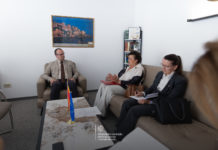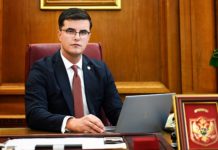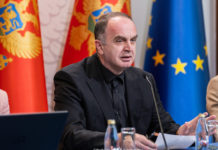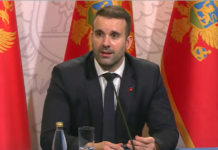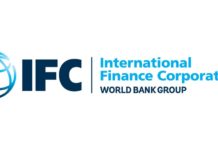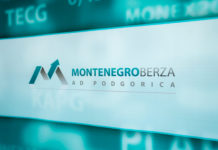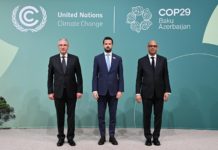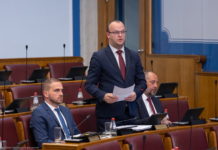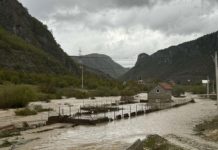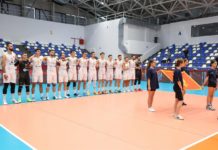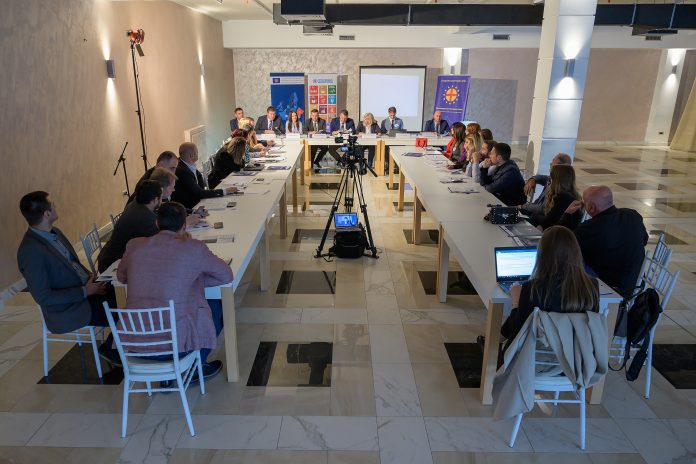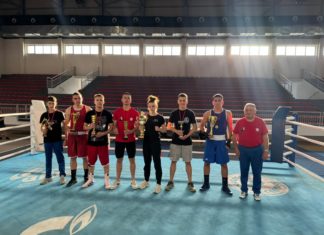Berane, (MINA) – It is possible to reach two thirds of the UN Sustainable Development Goals through the EU integration process, it was assessed in the conference organized by the Montenegrin Pan European Union (CPEU), while the necessity for encouraging cooperation between institutions and good policy coordination, in particular at the local level, was emphasized.
The conference “Building Sustainable Future for Montenegro through EU Accession and UN Sustainable Development Goals”, which took place in Berane on Friday and Saturday, is a part of the Jean Monnet project “Through Integration towards Sustainability in Montenegro- ERASMUS+, Jean Monnet Action”, supported by the EU, and co-financed by the Ministry of Public Administration.
CPEU president Gordana Djurovic underlined the importance of the projects which connect the EU integration and sustainable development targets, in particular at the local level.
She said that the UN Sustainable Development Goals are being reached through the accession process and reiterated that Montenegro was one of the first countries to commit itself to incorporate those goals in its own strategies, to strive to achieve and measure them.
“Annually, about 1.7 planet Earths are being consumed, which means that we use up more resources that the planet can renew”, said Djurovic explaining that the EU uses up its annual resources by mid-May, while Montenegro uses 1.25 “Montenegros” annually.
She said that employment and social policies, chapters on the rule of law, as well as environmental protection and climate changes, are the chapters that Montenegro has been negotiating with the EU, which are simultaneously important for the UN.
“We are witnessing high level of mobility in our region as well, and that some jobs are becoming high in demand, while for others offer exceeds demand in the labor market, along with uncertainty when speaking about sustainable development of future generations”, said Djurovic.
She remarked that the EU regulations are helpful on that path, as well as the policies common for all member states, and the financing models, and explained that Montenegro currently receives 1% of its GDP in EU grants, while once becoming a member state it will become eligible to receive much more, under the condition of being able to manage cohesion policy and submit high quality projects.
Djurovic believes that the debate on the EU is not thorough and comprehensive enough, although it has been almost seven years since Montenegro started the negotiation process, as well as that the state has a lot of European tasks in front of it waiting to be completed.
Bojan Vujovic from the EU Integration Office argues that the EU integration process has no alternative at the moment, regardless the membership perspective and the set deadlines.
He noted that Montenegro, during the seven years negotiation process, has achieved significant progress on the European integration path and underlined that Montenegro, compared to other countries from the earlier enlargement cycles, received a slower process, which lasts much longer than expected.
Vujovic remarked that about 65% or two-thirds of negotiation process benchmarks are consistent with the UN Sustainable Goals.
According to him, the EU earmarks a certain amount every year in grants to Montenegro and its efforts in the accession process, adding that following the accession, eight to ten times more money is expected in comparisons to €40 million Montenegro is receiving currently.
Advisor to Berane Mayor Darko Stojanovic agrees that the EU has no alternative and that Montenegrin society can only see the prospect in the framework of adoption of the European standards and democratic principles.
Stojanovic said that a number of young people are leaving the North due to lack of investments and available jobs, and that by joining the EU the youth will be offered more education and employment possibilities in the member states.
UNDP representative Miodrag Dragisic said that UNDP, through its program activities, promotes reaching the UN Sustainable Development Goals, and added that Montenegro adopted the National Strategy on Sustainable Development which has provided a framework in which direction the state is moving and what are sustainable development goals achievement in the Montenegrin context.
“Two-thirds of the sustainable development goals can be partially or fully achieved if the negotiation process ends successfully”, Dragisic stated, adding that space for speeding up the process of reaching the goals exists.
He said that a huge space for synergy between the EU and UN agendas exists in chapters 27- Environmental protection and climate changes, 23- Rule of law and 19-Employment and social policy, and stressed that it is necessary to enable the laws, which are aligned with the legislation, to be carried out so that all the goals could be reached.
The representatives of the EU Integration Office, Statistical Office, Ministry of Sustainable Development and Tourism and the Government’s Secretary General took part in the second day of the conference, named “Measuring sustainability: National Strategy of Sustainable Development of Montenegro by 2030 and the EU Agenda for Montenegro’s EU Accession by 2025”.
The set of conclusions and recommendations was passed at the end of the conference, that support better communication and strengthening of joint efforts in the process of achieving Montenegrin unique developmental and integration goals, in order to promote greener and more humane development of Montenegro on the path towards the full-fledged EU membership.
One of the conclusions is that the UN 2030 Agenda and EU 2025 Agenda are mutually closely related and contribute to reaching individual and common goals, as well as that it is necessary to further encourage cooperation among the institutions, both at local and national level, and with the international development partners and the NGO sector.
Further focus on both agendas is necessary, as well as to invest additional efforts in the process of development of sustainable development indicators, which are not only the indicators of reaching the UN goals, but also of reaching the EU standards in the field of common European policies.
The conference was an opportunity to mark 30 years of implementation of the EU’s Jean Monnet project, which promotes education and communication about the EU in more than 80 countries around the world.
Longer version of article is available on a link MINA ENGLISH SERVIS


